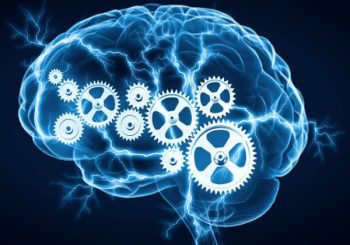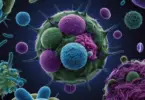Guest Writer for Wake Up World
Are you looking for something that boosts your brain — giving you more mental energy, motivation, memory, or focus? Then you’re looking for a nootropic.
Whether you’re a hard worker needing a boost of creativity, a student ready to hit the books, or a grandmother wanting extra energy for your weekend with the grandkids, nootropics may help. This class of supplements can help you think more clearly, boost your memory, and gain mental energy and focus. Read on to learn more.
[pro_ad_display_adzone id=”110028″]
What Are Nootropics?
People have used natural, plant-based herbal substances since ancient times to enhance brain health, mood, and overall wellness. They’re sometimes called “smart drugs” or “brain boosters.” While they can’t make you smarter, nootropics can give your brain a boost when needed.
The term nootropic comes from the Greek words for “turn” and “mind.” These substances enhance the brain’s executive functions. That means attention, learning, memory, and problem-solving. Executive function also includes states of mind, such as alertness and motivation.
People use nootropics for different reasons, from acing a test to gaining confidence in social settings. Others use them to improve athletic workouts, to help when working long hours on creative projects, or for improving memory.[1]
How Do They Work?
Nootropics work in different ways. Some increase the flow of blood flow, oxygen, and nutrients to the brain. Others change levels of neurotransmitters, chemical compounds that send messages between brain and body.[4] Dopamine is one example of a neurotransmitter.
Some brain boosting herbs and minerals are stimulating, like caffeine, while others are mentally soothing or stabilizing, like lithium orotate. All of them should boost your mental performance and improve cognition without harmful side effects.[2] Ideally, they should provide some health benefit to the brain itself.
Most natural nootropics reduce the effects of toxic chemicals and aging and may reduce redness and swelling in the brain. Some may even help generate new brain cells and new connections between neurons.
Health Benefits of Brain Boosters
Below are the top reasons people take natural nootropics and some of the top cognitive benefits they can provide.
Boosts Brain Function
One of the main reasons people take natural nootropics is so they can think more clearly. This can include generating ideas or performing more efficiently on challenging mental tasks.[3] Experts call this group of characteristics cognitive function.
Increases Focus
Nootropics may also allow you to improve concentration, making it easier to ignore distractions. This concentration of energy and attention may help you to complete tasks and accomplish goals.[3]
Helps Short & Long-Term Memory
People of all ages take nootropics to improve their ability to store and retrieve memories. Some herbs can help you learn, making them popular among students.[3]
Increases Energy & Endurance
Nootropics may make you feel more alert and energetic. That means you can persevere in a task without your energy flagging or you getting distracted. Caffeine is a classic example of this, but there are others. Some nootropics can improve your reaction time, which is helpful for athletes or people who drive long distances.[3]
Improves Mood
Certain nootropics can help lift spirits and boost your mood. Not only that, they may increase your motivation to finish tasks and accomplish goals.[3]
Reduces Anxiety
If you deal with daily stress (and who doesn’t these days?) nootropic herbs may help. You can take them to feel calm and remain balanced under pressure.[3]
Increases Creativity
Nootropics can even help artists get into a relaxed state of creative “flow.”[3] Whether you are in a creative career, an artist on the side, or just need some new ideas for life or work, this benefit can help everyone.
Natural Nootropics
Natural nootropics come from nature. They include herbs, minerals, and other substances. They are sold as dietary (nutritional) supplements and come in capsules, liquid extracts, or powders. Their effects tend to be more subtle than synthetic formulations and may increase over time.[4]
Did you know your morning coffee or green tea is a nootropic? Its caffeine is a popular and naturally occurring nootropic that increases attention, focus, and energy. Most nootropics are not stimulants, however. Some are adaptogens, which help you keep daily stress under control.
Some of the most popular herbal nootropics include:
- American ginseng
- Ginkgo biloba
- Huperzia serrata
- Rhodiola rosea
- Turmeric
- Creatine
- BioPQQ
- Lithium Orotate
- Zinc Orotate
You can buy nootropics as dietary (nutritional) supplements in capsules, liquid extracts, or powders.
Nootropic Stacking
Many people take several at the same time to achieve a greater benefit. This strategy is called stacking.
Many nootropic formulas contain multiple ingredients, like Global Healing Center’s NeuroFuzion®, which combines lithium orotate, zinc, Bacopa monnieri, Rhodiola rosea, and other herbs for a superior product that sharpens the mind and promotes happiness.
Are Nootropics Safe?
How nootropics affect you depends on many things. These include the type used, your particular physiology and health condition, the amount you take, and how often you consume them.
People have used natural nootropics for centuries, and they are generally safe and healthy when used as directed, especially when they come from a brand you know and trust. Synthetic nootropics — often prescription drugs or drugs made in a laboratory — are not recommended due to the possibility of reactions or abuse.[13]
Some natural nootropic herbs can have mild side effects. Others may interact with medications you may already be taking, so it’s a good idea to always check with your healthcare provider.
Should I Take A Nootropic?
With the toxins and stresses we face in modern society, plus the demands of jobs and families, we could all use some extra cognitive support to feel our best. If you are sleep-deprived, the best solution is more sleep, but if you need a boost during a critical time, nootropics may help.
If you’ve decided to try a nootropic supplement, just remember to start slow. Take a smaller serving and see how you respond.
Points to Remember
Nootropics, or cognitive enhancers, are substances that can improve the way you think, feel, and perform. Potential benefits include enhanced mental function, increased focus, improved memory, increased energy and endurance, better mood, and reduced stress and anxiety.
Natural nootropics include Gingko biloba, Rhodiola, lithium orotate, zinc, caffeine, and BioPQQ. These and other nootropic substances affect various pathways and systems in the brain. Some nootropics increase or decrease levels of neurotransmitters. Others boost the flow of blood, oxygen, or nutrients to the brain. Some even stimulate the growth of new brain cells. If you decide to try a nootropic, choose a trusted brand and pick one that offers the best effects for you.
Choosing a formula that combines several nootropics is called stacking and is safe when label directions are followed. Always look for a reputable brand to ensure you receive a quality supplement without additives or fillers.
Have you tried any of the above nootropics, or another one? Share your experiences in the comments below.
Article sources:
- Colaneri N, et al. Many Ivy League students don’t view ADHD medication misuse as cheating [news release]. 1 May 2014. American Academy of Pediatrics. Washington, DC:Eurekalert, American Association for the Advancement of Science.
- Giurgea CE. The nootropic concept and its prospective implications. Drug. Dev. Res. 1982;2:441-446.
- Joshi PC. A review on natural memory enhancers (nootropics). UJEAS. 2013;01(01):8-18.
- Suliman NA, et al. Establishing natural nootropics: recent molecular enhancement influenced by natural nootropic. Evid Based Complement Alternat Med. 2016;2016:4391375.
- Malik R, et al. Towards better brain management: nootropics. Curr Med Chem. 2007;14(2):123-131.
- Ferré S. An update on the mechanisms of the psychostimulant effects of caffeine. J Neurochem. 2008 May;105(4):1067-1079.
- Marshall TM. Lithium as a nutrient. J Am Physicians Surgeons. 2015; 20(4):104-109.
- Gareri P, et al. Role of calcium in brain aging. Gen Pharmacol. 1995 Dec;26(8):1651-1657.
- Wang J, et al. Zinc, magnesium, selenium and depression: a review of the evidence, potential mechanisms and implications. Nutrients. 2018 May;10(5):584.
- Itoh Y, et al. Effect of the antioxidant supplement pyrroloquinoline quinone disodium salt (BioPQQ™) on cognitive functions. Adv Exp Med Biol. 2016;876:319-325.
- Murase K, et al. Stimulation of nerve growth factor synthesis/secretion in mouse astroglial cells by coenzymes. Biochem Mol Biol Int. 1993 Jul;30(4):615-621.
- Avgerinos K, et al. Effects of creatine supplementation on cognitive function of healthy individuals: a systematic review of randomized controlled trials. Exp Gerontol. 2018 Jul 15;108:166-173.
- Thorley E, et al. Varsity medical ethics debate 2015: should nootropic drugs be available under prescription on the NHS?. Philos Ethics Humanit Med. 2016;11(1):6.
Originally published at Global Healing Center and reproduced here with permission.
Recommended articles by Dr. Edward Group:
- 13 Ways to Improve Memory Naturally
- Mental Clarity: 9 Solutions That Work
- Natural Appetite Suppressants: The Best Ways to Eat Less and Lose Weight
- Everything You Need to Know About Hemp vs. CBD
- CoQ10 Benefits: A Powerful Energizing Antioxidant for Health and Vitality
- The Healing Power of a Gut Cleanse: 6-Day Detox
- Hormonal Imbalance in Women: Top Causes and Home Remedies
- The Top 10 Detox Herbs
- 14 Foods that Cleanse the Liver
- Top 5 Foods for the Pineal Gland
About the author:
Dr. Edward F. Group III (DC, ND, DACBN, DCBCN, DABFM) founded Global Healing Center in 1998 with the goal of providing the highest quality natural health information and products. He is world-renowned for his research on the root cause of disease. Under his leadership, Global Healing Center earned recognition as one of the largest natural and organic health resources in the world. Dr. Group is a veteran of the United States Army and has attended both Harvard and MIT business schools. He is a best-selling author and a frequent guest on radio and television programs, documentary films, and in major publications.
Dr. Group centers his philosophy around the understanding that the root cause of disease stems from the accumulation of toxins in the body and is exacerbated by daily exposure to a toxic living environment. He believes it is his personal mission to teach and promote philosophies that produce good health, a clean environment, and positive thinking. This, he believes, can restore happiness and love to the world.
For more, please visit Global Healing Center.
[pro_ad_display_adzone id=”110027″]








